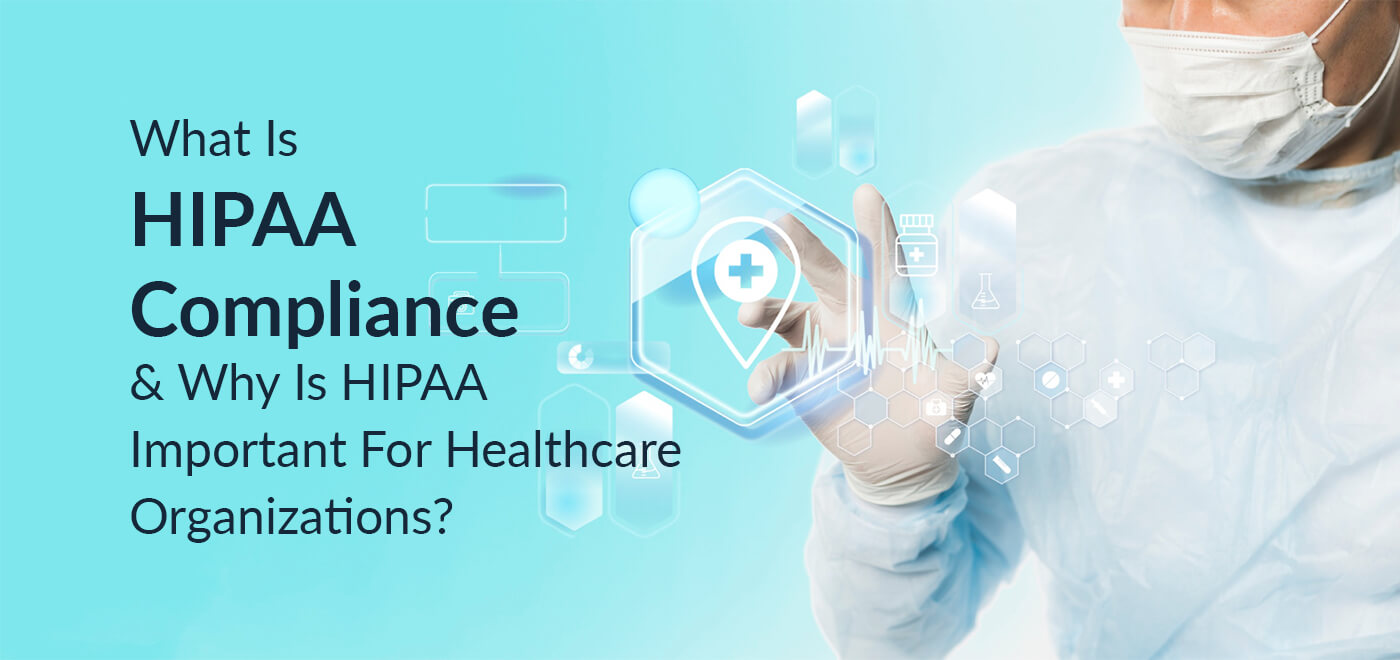Hello, and welcome to the exciting realm of HIPAA compliance! If you have ever ventured into the healthcare sector, you’ve probably heard this term. It’s a short way of saying the Health Insurance Portability and Accountability Act. Our conversation will touch on not just HIPAA compliance but we’ll also shed light on HIPAA compliance solutions.
HIPAA solutions aren’t just a fancy term. It’s a must-follow rule for those handling health info. It’s a clear, step-by-step guide to keeping patient data safe, making sure it’s treated with care and privacy. Today, when data leaks and cyber-attacks are common, HIPAA compliance is like the gold medal of data safety in healthcare.
Also, as we go deeper, we’ll come across a key phrase – HIPAA Compliance solutions. Now, you might ask, what are these solutions? They are the tools, tricks, and services that healthcare providers use to hit and keep HIPAA compliance. These solutions are like the North Star, helping organizations through the tricky path of compliance.
So, let’s start this educational trip, where we decode the specifics of HIPAA compliance and its role in healthcare. We’ll also highlight the critical part of HIPAA compliance solutions. This chat will boost your understanding and walk you through the changing scene of data safety in healthcare.
Understanding HIPAA
The “Health Insurance Portability” part focuses on ensuring that employees can maintain their health insurance coverage when they switch jobs or lose their current ones. The “Accountability” part imposes a level of responsibility on organizations that handle healthcare data, requiring them to safeguard it against breaches.
President Bill Clinton signed the HIPAA law into effect in 1996. However, understanding the context behind the birth of HIPAA is crucial. In the mid-1990s, the healthcare industry was transitioning from paper-based systems to digital ones, driven by the rise of electronic medical records and health information exchanges.
While these digital systems offered improved efficiency, they also presented new challenges in maintaining the privacy and security of patient health information. It became clear that there was a need for a set of standard rules to govern the handling of this sensitive data. That’s where HIPAA came in. HIPAA was established to establish a benchmark for safeguarding patient health information from unauthorized disclosure without the patient’s consent or knowledge.
The rules outlined by HIPAA edi software solutions ensure that the electronic exchange of health information occurs in a secure and private manner. These solutions vary from advanced software systems to comprehensive auditing tools.
In essence, understanding HIPAA and its origins lays the foundation for appreciating the immense significance of HIPAA compliance solutions and HIPAA EDI software solutions. These tools are not merely about meeting regulatory requirements; they are about building trust, safeguarding privacy, and providing peace of mind to both patients and healthcare providers in an increasingly digitized world.
We will further explore the role of these solutions in navigating the complex landscape of healthcare data privacy and security. Stay tuned, as the story of HIPAA and health insurance enrollment software and the accompanying solutions is far from over.
What is HIPAA Compliance?
HIPAA compliance means following the rules set by the Health Insurance Portability and Accountability Act. These rules aim to make sure that everyone working with protected health information (PHI) is doing so safely and carefully. Let’s discuss the main parts of HIPAA compliance. Think of it as a trio made up of the Privacy Rule, Security Rule, and Breach Notification Rule.
The Privacy Rule sets national standards for guarding people’s medical records and other health information. It applies to health plans, health clearinghouses, and healthcare providers doing certain electronic health-related transactions.
The next part is the Security Rule. This rule backs up the Privacy Rule by setting up standards for protecting electronic PHI (ePHI). It orders that all HIPAA-covered entities and their business partners put in place suitable administrative, physical, and tech safeguards to ensure the privacy, integrity, and safety of ePHI.
Finally, the Breach Notification Rule makes covered entities and their business partners give notice after a breach of unsecured PHI. This rule makes sure there is openness if a data breach unfortunately occurs.
This is where HIPAA compliance solutions and health insurance sign-up software come in handy. These tools offer the help needed to reach and keep these rules. They guide on the HIPAA compliance journey, giving the needed structures, safety steps, and processes to meet the strict standards set by HIPAA.
HIPAA compliance is a vital task for any group dealing with PHI. It’s not just about meeting legal rules but about building trust between healthcare providers and patients, ensuring their sensitive health info is safe. With HIPAA compliance solutions and health insurance sign-up software, this task becomes much easier and more manageable, encouraging a compliance and data protection culture within healthcare.
Why is HIPAA Compliance Crucial?
HIPAA compliance is the shield that guards health data in healthcare. So why is HIPAA compliance so vital? Let’s explore this, focusing on how HIPAA compliance solutions and health insurance software for brokers help in this journey.
HIPAA compliance is crucial for many reasons. Firstly, it protects patients’ privacy rights. HIPAA compliance assures patients their private health info is safe and handled with dignity.
Next, HIPAA compliance builds trust between patients and healthcare givers. Picture going to a doctor and fearing for the safety of your medical records. Would you be at ease? Likely not. Therefore, being HIPAA compliant assures patients their trust is not misplaced, nurturing a sound patient-provider bond.
HIPAA compliance’s importance goes beyond maintaining ethics and trust. It’s also about dodging huge risks tied to non-compliance. If an organization overlooks HIPAA’s rules, it can face stiff consequences, spanning from legal problems and heavy financial fines to severe reputation damage.
Legal troubles and fines under HIPAA are no joke. They can vary from minor penalties for small violations to fines as high as millions of dollars for big breaches and can possibly paralyze an organization’s function.
Additionally, a HIPAA violation can cause irreparable harm to an organization’s reputation. In an industry where trust is key, a single data leak can ruin patients’ faith and cause a substantial loss of clients. It’s a high cost to pay, which underlines the need for tight HIPAA compliance.
HIPAA compliance solutions and health insurance software for brokers play a key part here. These tools offer the needed structure and steps for healthcare organizations to make sure they meet all HIPAA demands and sidestep risks tied to non-compliance. By using these solutions, healthcare bodies can focus more on their core task – providing quality care while knowing their compliance needs are handled.
Role of HIPAA in Protecting Patient Information
Let’s explore HIPAA’s role in safeguarding sensitive health info. HIPAA compliance solutions and the growth of health insurance software companies tie into this core principle. HIPAA acts as the guiding star in healthcare, ensuring careful use and protection of sensitive patient health info.
These protections include technical and admin steps. For example, data encryption rules are in place. This turns data into code to stop unlawful access. Strict rules on who can see the data and when also exist. They help healthcare providers and health insurance software firms put these protections into action. This keeps them on the right side of the law.
Furthermore, one crucial right is the right to access. This lets patients look at, check, and get a copy of their health info and medical records. Patients also have the right to fix their data. If their health records are incorrect or are missing info, they can ask for changes.
Another key right is the right to privacy. Here, patients can tell their healthcare providers not to share info about their treatment with certain people. This right even applies to family members, allowing patients full control over their health data.
Furthermore, HIPAA gives patients the right to know about data breaches. If a healthcare organization or health insurance software firm suffers a breach affecting a patient’s data, they must tell the patient by law.
Lastly, patients can file complaints. If they think their rights have been ignored or their health info isn’t safe, they can raise this with their provider, health insurer, or the U.S. government.
HIPAA plays a vital role in keeping patient info private and secure. It gives power to patients, lets them control their data, and sets a standard for the healthcare industry to follow.
HIPAA Compliance Solutions: What Are They?
In the complex world of healthcare, solutions for HIPAA compliance are truly priceless. So, what’s their role exactly? How do they aid in achieving compliance? Let’s dive in and explore the intriguing realm of HIPAA compliance solutions.
In plain terms, these solutions are aids. They can be tools, services, or software, all with one purpose: to help healthcare groups adhere to and maintain the various HIPAA rules. Their role in making sure healthcare outlets follow HIPAA guidelines and protect patient data is the key to a structured system.
Another equally important feature of HIPAA compliance solutions is the focus on data safety. Data leaks can lead to serious fallout, both in money and in reputation. Thus, many solutions offer strong security functions. This includes data encryption, secure data storage, and routine security checks. These features work to protect patient health info from unwanted access, theft, and other online threats.
Audit controls are necessary to assist in keeping track of and examining activity in systems that handle health info. This helps in spotting potential security issues, providing necessary info for reporting leaks and finding patterns that may show unauthorized access attempts.
Additionally, HIPAA compliance solutions often come with training parts for staff members. These lessons teach the team the value of HIPAA compliance, the various rules they must follow, and the part they play in protecting patient health data.
The usefulness of these solutions isn’t limited to just healthcare outfits. Benefit administration software solutions also find these tools helpful. These software solutions deal with sensitive employee health info, making them subject to HIPAA rules.
These solutions act as a guide, leading healthcare groups and benefits administration software solutions alike towards HIPAA compliance. They provide an effective, orderly, and complete way to achieve and maintain compliance.
Choosing the Right HIPAA Compliance Solutions
Selecting from the many HIPAA compliance solutions may seem tough. But let’s dig in and uncover major tips and tricks when picking the ideal HIPAA compliance solution for your group. Before setting off to hunt for the right solution, you must figure out your needs. Spotting your needs helps trim down the huge selection of compliance solutions to the ones that fit your group best.
A HIPAA compliance solution should mix effortlessly with your current IT setup. Solutions that have a high match rate will lessen disruption and get the most from your current resources.
In your search for the correct HIPAA compliance solution, pay special focus to its data safety features. Strong data coding, safe data storage, and frequent security checks should be the core. Seek a solution that provides full defense against data leaks and cyber risks.
The ease of use of the solution is also key. A solution that’s simple to get around and understand will be more quickly used by your team. Plus, it will cut down on the time taken to learn the system and boost productivity.
HIPAA compliance solutions are not just useful for healthcare groups but also for Benefits Administration Outsourcing Companies. Such companies handle a lot of sensitive health info, making them subject to HIPAA rules. By using a HIPAA compliance solution, these companies can make sure they manage this info carefully and stick to all relevant laws.
The perfect HIPAA compliance solution for your group or Benefits Administration Outsourcing Companies should match your needs, blend well with your current systems, offer strong data safety, and provide full team training parts. With these points in mind, the path through the puzzle of HIPAA compliance solutions should become less tough, leading you right to the solution that suits your group best.
HIPAA Compliance Solutions: Best Practices
The key to compliance solutions lies in regular staff training, risk assessments, and routine checks. These steps will ensure your firm, whether a health care provider or an employee benefits provider, stays strong in its HIPAA compliance. Start by understanding that HIPAA compliance is not just a one-off task; it’s a never-ending commitment.
An important part of these efforts is training all staff members. Each person, no matter their role, has a part in keeping the organization HIPAA compliant. Just like a top-notch cook is crucial for a great restaurant, trained employees are key for a HIPAA-compliant firm. Training should cover HIPAA basics, individual roles in maintaining compliance, and how to keep patient data safe.
Moreover, risk assessments are the guiding star on the HIPAA journey. They’re like regular doctor visits, helping spot problems before they get too big. They show you weak points in your systems and processes, giving you a chance to fix them quickly. As the saying goes, prevention is better than cure.
Routine checks are the final piece in the HIPAA puzzle. These are like car services, making sure everything’s working well. Regular checks confirm that the HIPAA measures are doing their job and highlight areas that need improvement.
HIPAA compliance solutions also help firms that provide employee benefits solution providers. These companies handle a lot of health data, making them an easy target for data theft. HIPAA compliance can offer the necessary security to keep this data safe, cutting down the risk of expensive data leaks and keeping their clients’ trust.
Conclusion
Let’s wrap up our chat by looking back at our joint journey. We took a deep dive into the world of HIPAA & learned about its many rules and the consequences of not following them. We also saw how HIPAA protects patient data and what tools are there to help companies stay on track.
HIPAA rules are not fixed. They’re as dynamic as the health sector itself, always evolving to meet its needs and tackle new challenges. Like a river that changes course, HIPAA rules adapt to new tech, methods, and threats in healthcare.
Stay ready for updates or changes to these guidelines. They’ll reflect changes in tech and societal norms. For instance, the rise of telemedicine and digital health has pushed for new rules to keep patient data safe.
Trends in Future HIPAA Compliance Tools
There are a few trends we can probably expect in HIPAA compliance tools in the future. Firstly, a greater reliance on tech is likely. As more healthcare firms go digital, tech-based HIPAA tools should become more common. They’ll be more robust, using AI and machine learning to better watch, analyze, and protect patient data.
Secondly, we think a more proactive approach to HIPAA compliance will become popular. Instead of only responding to breaches, companies will use tools that can predict and prevent possible threats.
Lastly, as people become more aware of data privacy, they’ll likely want more transparency in how their patient data is handled. In this case, HIPAA compliance tools will be crucial. They’ll make sure companies follow the rules and can prove it to their patients.
Following HIPAA isn’t just about avoiding fines; it’s about putting patients first. It’s about creating a space where patients trust their healthcare providers with their private data.
We’ve only just scratched the surface of this vast topic. There’s so much more to understand and apply. But with the right HIPAA compliance tools, you’ll be prepared for this challenge.
Remember, every step towards HIPAA compliance is a step towards a safer, more secure healthcare sector.
FAQ’s
HIPAA stands for the Health Insurance Portability and Accountability Act. Enacted by the U.S. Congress in 1996, its primary purpose was twofold. First, it aimed to ensure that individuals could maintain their health insurance between jobs, addressing the ‘portability’ aspect. Second, it introduced measures to manage the confidentiality and security of patient’s health information, hence ‘accountability’. It marked a fundamental shift in the healthcare industry, emphasizing patient privacy and data security.
HIPAA protects patient information like a vigilant guard. It sets out rules that healthcare providers and other entities have to follow to keep patient data secure. These rules cover a range of areas, from who can access patient data, to how it should be stored, to what happens if there’s a data breach. Think of it like a comprehensive security plan designed to keep patient information safe from prying eyes.
Failure to comply with HIPAA can be likened to a speeder caught by traffic police – there will be penalties. Depending on the severity of the violation, these can range from fines to criminal charges. Additionally, it can result in reputational damage that can impact an organization’s trustworthiness in the eyes of patients and partners.
HIPAA Compliance Solutions are like expert guides helping you navigate the complex world of HIPAA regulations. They are tools or services designed to help healthcare organizations adhere to the requirements of HIPAA. They might include features like data encryption, secure communication platforms, and automatic backup systems. Essentially, they work behind the scenes to ensure your organization is keeping patient data safe and secure, as per HIPAA regulations.
Selecting a HIPAA Compliance Solution is a bit like choosing the right hiking gear. You need to consider several factors. These might include ease of use, compatibility with your existing systems, level of customer support, and, of course, cost. It’s also crucial to choose a solution that is fully HIPAA compliant.





